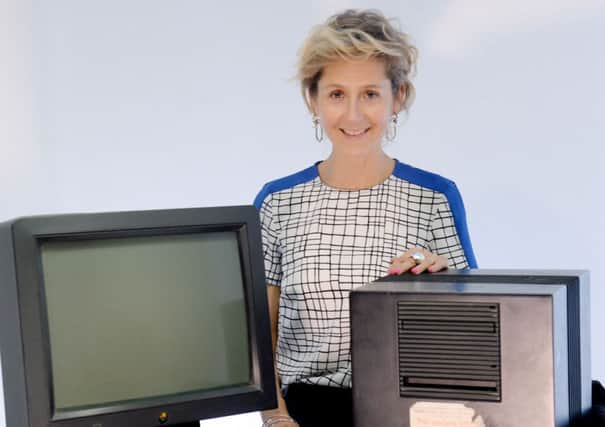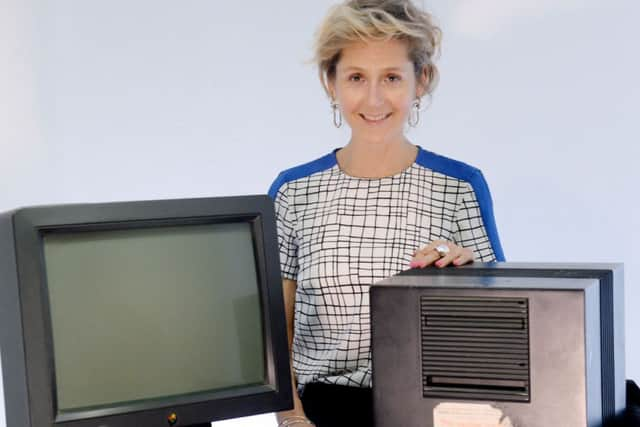How the world wide web changed our lives forever


Like most inventions which go onto change the world, the birth of the world wide web happened with very little fanfare.
Twenty five years ago today a British scientist by the name of Tim Berners-Lee submitted a proposal to the bosses of the Swiss laboratory where he was based. Even by academic standards, the title was a little dull. Berners-Lee wanted the go ahead for a “distributed information system” which would better allow researchers to deal with the huge amounts of information generated by complex physics experiments.
Advertisement
Hide AdAdvertisement
Hide AdThe brief response from the chain of command was “vague, but exciting”. However, with that one document the genie had been let out of the lamp. The way of accessing the internet would change the way we shop, find jobs, do business and even date, but most of us were slow to catch on.


Almost 10 years later I was just starting my first job in journalism. Email was available on just one of the dozen or so office computers, in the corner the fax machine, which churned 24-7, was still king and when anyone wanted to find a phone number they went to the shelf lined with BT directories.
Within a year, possibly two, everything had changed. The fax machine was all but silent, those directories were gathering dust and so dependent had we become on email and sourcing information from the internet that even the phones didn’t ring as often as they once had.
“I’m sure it was 1998 when I sent my first email which was to my only friend who had a hotmail account,” says Sean Dodson, a senior lecture at Leeds Metropolitan University and social media specialist. “Until the late 1990s the internet was seen as marginal, something which was only used by the military or big business. However, when it entered the mainstream it spread at a quite phenomenal speed.
Advertisement
Hide AdAdvertisement
Hide Ad“Within 15 years the internet went from being something held at arms length to something that many of us use all day, every day. There is no turning back.”
Berners-Lee was motivated by a philosophy that the internet should be open to everyone, but not everyone shared his altruistic aims. Many saw it as a chance to make a quick buck and its rapid growth has been punctuated by the boom and bust of the dot-com companies.
By the late 1990s, when Amazon and eBay were taking their first, faltering steps online, anything seemed possible if you threw enough money at in and in Silicon Valley some $2bn a week was flowing into venture capital firms.
The mad dash to profit from the internet led to many companies securing massive investment before they had made any sales or secured any customers. Gaping holes in flimsy business plans were quickly exposed and in 2000, Britain’s own dotcom bubble burst with the collapse of online fashion retailer Boo.com.
Advertisement
Hide AdAdvertisement
Hide AdFounders Ernst Malmsten and Kajsa Leander had reckoned the business would need £20m, 30 people and three months to launch. When the site finally went live in October 1999, it employed 400 people in eight offices and had already demanded four times the initial expected investment. The real problem, however, was just 20 per cent of UK households had access to the internet and slow dial-up connections made browsing impossible.
Like so many of those early failures it was a case of companies offering carts before their customers even had horses. However, chastened by collapse many firms did regroup and when they were ready to try again, they found a ready made market waiting to be exploited - broadband was about to turn us into a nation of armchair consumers.
In 2000 British shoppers spent about £800m online. Last year the total was £91bn. And the figures are growing.
“The internet has been the biggest shift in retail since the move from counter service to retail self-service in the 1960s and 70s,” says Chris Webster, head of the retail, technology and consultancy Capgemini UK. “That shift transformed the way we shop, but this is the next enormous change, from the store based model to the internet. However, you could argue that the days when the greengrocer used to drive around people’s homes has now turned full circle.
“Now we just order in advance.”
Advertisement
Hide AdAdvertisement
Hide AdTwo out of five people in the world are now connected to the internet and the Government has just announced match funding of £5m will be allocated to East Yorkshire as part of its drive to ensure 95 percent superfast broadband coverage across the UK.
Those improvements will only add to the mountain of data we collectively produce each day. Each year 22bn letters are still delivered by the Royal Mail, but compare that to the 2.4tn emails sent in the UK. That’s more emails sent in four days than letters delivered in 12 months.
“As the data mountain has grown so has the capacity to store it, analyse it and extract value from it,” says Deputy Prime Minister Nick Clegg, who is pushing for tougher oversight of the work of security and intelligence services. “That in many ways is good news. For example, it means companies can offer us free services and applications driven solely by advertising revenues.
“On the other hand, few of us are really aware of the size and nature of our electronic footprint. Smart phones keep track of so much more about us than could ever been possible in the past, including recording our location on a regular basis. But we understand little about who retains such data and what it might reveal.”
Advertisement
Hide AdAdvertisement
Hide AdIt is one of the paradoxes of the internet. Tweets and Facebook updates take just seconds to post, but their lifespan is infinite. The internet, as some has learnt to their cost, never forgets. It’s an issue Sean witnesses every day.
“I don’t think those who have grown up with Twitter and Facebook see privacy the same way as older generations,” says the 44-year-old. “I don’t want to create a picture of complete dystopia but when it comes to technological advances we should be worried and excited in equal measure.
“Chips have already been developed for everything from cars to clothing which will allow companies to track behaviour. That might mean that if you always drive within the speed limit, a car insurance company will give you better rates, but we should be wary of giving away so much information about ourselves.
“Since we all registered for our first email we have logged our details on dozens, perhaps hundreds of other websites and increasingly we are asked to register through Facebook or Twitter. There are hundreds of people in the world called Sean Dodson, but soon technology will be able to identify me as the Sean Dodson who works at Leeds Met and provide a highly detailed picture of my life. We might not like that, but we do need to deal with it, because that’s the reality.”
Advertisement
Hide AdAdvertisement
Hide AdThe world is a very different place to the one Berners-Lee knew 25 years ago. Ordinary people in war-torn countries can now communicate with the rest of the world, news takes just seconds to break and families separated by thousands of miles can talk on Skype like they were just in the next room. Yet we have also become slaves to technology.
“For all the apparent freedom the internet has given us, there are some people like the US academic Sherry Turkle who say that we’ve become tethered by networked devices,” says Helen Kennedy, senior lecturer in new media at the University of Leeds. “Rather than being free to work and communicate anywhere, rather we are never free not to work or communicate.”